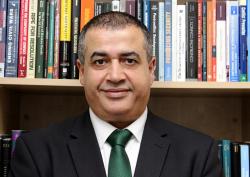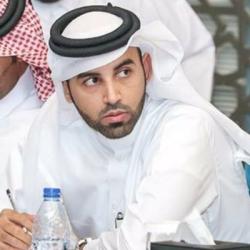

1:30 am AST - 3:30 am AST
Past Event
Content from the Brookings Doha Center is now archived. In September 2021, after 14 years of impactful partnership, Brookings and the Brookings Doha Center announced that they were ending their affiliation. The Brookings Doha Center is now the Middle East Council on Global Affairs, a separate public policy institution based in Qatar.
The Brookings Doha Center (BDC) and Qatar University hosted a panel discussion on August 27, 2017, which discussed the ongoing Gulf crisis. The panel included Shafeeq Ghabra, professor at Kuwait University; Nayef Bin Nahar Alshammari, professor at Qatar University; Ibrahim Fraihat, professor at the Doha Institute for Graduate Studies, and Nader Kabbani, director of research at the BDC. Abdullah Baabood, professor at Qatar University, moderated the event, which was attended by members of Doha’s diplomatic, academic, and media communities.
Dr. Ghabra began by noting that being in Qatar at the start of the crisis felt like being in Kuwait prior to Iraq’s invasion in 1990. However, Kuwait’s mediation, Turkey’s military backing, Iran’s offers of support, and Qatar’s steadfastness combined to balance against the blockading countries. Ghabra argued that the suddenness and lack of justification for the blockade showed the irrationality of the crisis.
Qatar, Ghabra continued, has responded to the new situation by establishing new relations among Qataris and with expats, in something of a new birth that can be built upon. Meanwhile, strengthened ties with Turkey and Iran and new transportation routes show that Qatar may be better off acting like an island. Ghabra went on to criticize the blockading countries’ demand to close Al-Jazeera and their attempt to use Qatar’s support for Hamas to justify the crisis. “This is a cover for a battle against rights, against liberties, against citizens that want to be part and parcel of political partnership,” he argued.
Ghabra predicted that the pressure on Qatar would ease as it challenges the blockade in courts and the international community sides with it. He said resolution will rely on the individuality of GCC states, whereas attempts to impose a monopoly is harmful. Ghabra called for GCC states to listen to critical voices and to seek justice within and between countries, which paves the way for badly needed “political, economic, and democratic openness.”
Dr. Alshammari opened by blaming the crisis on the GCC’s failure to resolve its problems, cooperate effectively, and achieve greater unity despite existing for 36 years. One problem is the lack of a unified definition on regional security, which hinders cooperation, as there are differing stances on actors such as the Muslim Brotherhood. Alshammari listed people’s lack of participation in political decisions as another of the GCC’s problems. In the Gulf, he explained, when there is a crisis, the people “have no weight, no impact, only one person does.” He argued that until these two shortcomings were addressed, the GCC would continue to face crises.
Turning to the current crisis, Alshammari said the blockading countries should have kept it within the Gulf “house,” rather than internationalizing it by engaging the White House and including Egypt. The countries’ second mistake, he continued, was shifting the crisis from the political level to the people, who now exchange abuses, incinerating the potential for future cooperation. There is also a loss of trust, creating a risk that “hostility and conflict will be a culture in the Gulf.” To end the crisis, Alshammari called for insulating it from the people and addressing it through diplomatic and political channels while reducing the media’s involvement, which has escalated tensions.
Regarding whether Qatar would remain in the GCC, Alshammari said Qatar cannot be forced out and is not planning to withdraw. He acknowledged that many Qataris now want to leave the GCC, but argued that Qatar still benefits from the council, which is ultimately its strategic depth. He added that the situation would likely change before the GCC’s annual summit in December.
Dr. Fraihat first observed that the crisis has shattered the GCC’s security apparatus by ending the United States’ monopoly in the region. Economically, it is actually healthy to diversify security providers, but having to take into account the relations between them can be complicated. Yet Fraihat argued that only by developing the capacity for “self-security” can the GCC ensure its autonomy, and that the GCC’s political framework is essential to that process. He called the targeting of this framework “the most dangerous thing” that has resulted from the crisis.
Taking a step back, Fraihat said the Gulf crisis had worsened the situations in Syria, Yemen, and Palestine. The GCC has completely withdrawn from the Syrian file, and Qatar has withdrawn from Yemen, where the situation has continued to deteriorate. Within the GCC, the crisis has changed its value system and ability to deal with crises, as evidenced by the talk of military action. Fraihat also noted that many taboos had been broken by the crisis, including talk of possible alliances between GCC states and Israel.
Asked how the Gulf countries can achieve self-security, Fraihat remarked that it is a political decision, first and foremost, and cannot be realized if there is infighting. Iran’s nuclear deal prevents it from enriching uranium for 10 years, but instead of the GCC states building up their capabilities, they are attacking one of their own members.
Dr. Kabbani turned the focus to the economic aspects of the crisis, starting with the difficulties the Gulf states had already been facing. First, oil prices have been low since 2014, and at their current level Kuwait is the only GCC member that can balance its budget. As a result, Kabbani noted, even prior to the crisis the GCC’s economies were only projected to grow by 1 percent in 2017. Meanwhile, he continued, GCC states have struggled to diversify their economies and suffer from weak institutions, as shown by their development and education outcomes.
Kabbani argued that to deal with these challenges the GCC states should cooperate economically, but now a political dispute is damaging economic and social interests. Kabbani said Qatar has faced some difficulties with commodities and investment and experienced reduced liquidity, but its natural gas revenues and sovereign wealth fund enable it to endure the pressure. He reported that businessmen are starting to find new suppliers, often with lower costs, which offsets increased logistical costs. As for the boycotting countries, they have lost their share of the $10 billion trade balance they had with Qatar, and potentially tens of billions of dollars in investment opportunities.
Summing up the crisis, Kabbani concluded that it is economically costly for all the involved countries, making it in their interest to solve it as soon as possible and start dealing with the security and economic challenges that face the region.




Noha Aboueldahab
August 23, 2021

August 23, 2021

Yasmina Abouzzohour
August 19, 2021